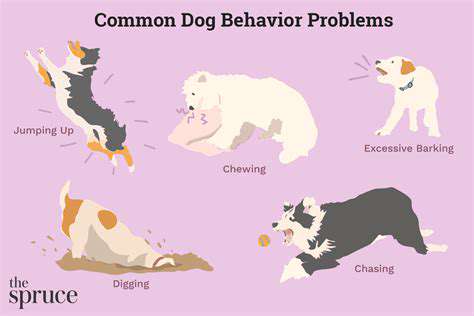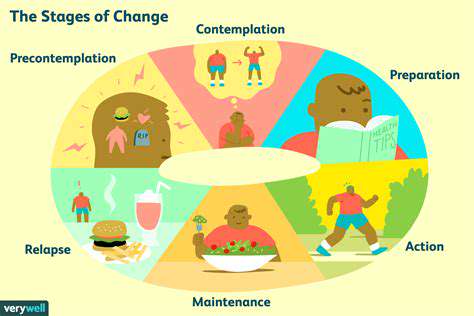If You Notice Your Dog Acting Unusually, Here's What To Do
Common Signs of Unusual Behavior in Dogs

Changes in Eating Habits
One of the first signs that something may be off with your dog is a change in their eating habits. If your dog suddenly refuses to eat or shows a marked decrease in appetite, it could be a sign of an underlying health issue. Changes in diet can indicate stress or illness, so it's important not to ignore this behavior. Conversely, increased hunger can also point to medical conditions that need attention.
Monitoring your dog's food intake and behavior around feeding times can provide valuable insights. Keep an eye out for other symptoms such as vomiting or diarrhea that may accompany these changes. Sometimes, eating too quickly can also be problematic, leading to digestive issues.
If the unusual behavior persists for more than a day or two, consider consulting your veterinarian. They can perform a thorough check-up to determine if a medical condition is affecting your dog's appetite.
In general, staying attuned to your dog's feeding habits can help you catch potential health issues early.
Decreased Social Interaction
Another common sign of unusual behavior in dogs is a decrease in social interaction with family members or other pets. If your typically friendly dog suddenly begins to isolate itself, it may be feeling unwell or anxious. A sudden shift from sociable to withdrawn can be a clear indicator that something is wrong. Dogs are pack animals, and significant changes in their desire to engage with others may warrant investigation.
Pay attention to whether your dog is avoiding playtime, ignoring commands, or not greeting you as they usually would. These changes can signal underlying emotional or physical issues. Sometimes, stress from environmental changes, such as moving or a new family member, might also cause this behavior.
Ensuring your dog has plenty of opportunities for socialization can help alleviate anxiety and improve their mood. Engaging them in play or taking them for walks can encourage social interaction and potentially lift their spirits.
If you notice prolonged withdrawal, it may be time to reach out to a professional to assess the situation.
Unexplained Aggression or Anxiety
Increased aggression or anxiety in dogs can be alarming and is often a sign of distress. If your dog, who is usually calm and friendly, suddenly becomes aggressive towards people or other animals, it may indicate pain or fear. Such drastic changes in behavior should not be overlooked, as they may pose safety risks. Behavioral changes can also stem from underlying health problems or past trauma.
Signs of anxiety can manifest in various ways, including excessive barking, pacing, or destructive behavior. Understanding the triggers for your dog's aggression or anxiety can help you manage the situation. For example, loud noises or unfamiliar environments can provoke these reactions.
Implementing training techniques that promote positive behavior and reduce anxiety can be effective. Consulting with a professional dog trainer or a veterinary behaviorist may provide strategies tailored to your dog's specific needs.
Recognizing and addressing these behavioral changes promptly can lead to better outcomes for both you and your dog.
Possible Causes of Behavioral Changes

Health Issues
One of the primary reasons for a sudden change in your dog's behavior could be health-related issues. It's crucial to observe any additional signs of discomfort or illness, such as changes in appetite or lethargy. Dogs cannot verbally express their discomfort, and as a result, any behavioral changes could signal an underlying health problem.
Common health issues that may lead to behavioral changes include dental pain, infections, or chronic conditions like arthritis. Regular veterinary check-ups can help identify these issues early, ensuring your dog remains healthy and happy.
Environmental Factors
Environmental changes can also significantly impact your dog's behavior. A move to a new home, the arrival of a new family member, or even changes in your routine can cause stress in your pet. Being attentive to these factors can help you better understand the reasons behind your dog's unusual behavior.
Steps to Take When Your Dog Acts Unusually
Observe Your Dog's Behavior Closely
When you first notice unusual behavior in your dog, it’s important to take a moment and observe them closely. Changes in behavior can manifest in various ways, including excessive barking, withdrawal, aggression, or even changes in appetite.
Keep a detailed record of your dog's behavior, noting any specific incidents or changes that occur. This information can be invaluable when it comes to determining whether the behavior is a one-time occurrence or a recurring issue.
Look for any patterns in their behavior. For example, do they become anxious during certain times of the day, or do they show sensitivity to specific stimuli, like loud noises or new environments? Patterns can provide clues about what might be troubling your furry friend.
Additionally, make sure to consider environmental factors that may have changed recently. Have you moved to a new location? Have there been significant changes in your family structure, such as a new pet or a baby in the home? All these factors could impact your dog's behavior.
Ultimately, understanding the nuances of your dog's typical behavior will better equip you to identify when something is amiss. This initial observation can guide you toward the next steps in addressing their unusual behavior.
Consult a Veterinarian When Necessary
If your observations indicate that the unusual behavior persists or worsens, it might be time to consult a veterinarian. They can offer professional insight into whether the behavior is symptomatic of an underlying medical issue.
A vet can perform a thorough examination and, if necessary, run diagnostic tests to determine if there are any health problems contributing to your dog's behavioral changes. Common issues could include pain from an injury, illness, or even age-related cognitive decline.
Don’t hesitate to share your observations with the vet. Detailed information about the changes you’ve seen will help them form a more accurate diagnosis and treatment plan. The more data you provide, the better equipped they are to assist you.
In some cases, behavioral issues might also be linked to diet or nutritional deficiencies. Your veterinarian can advise if any dietary changes are necessary to support your dog's overall wellness.
Remember, it’s always better to err on the side of caution. If your intuition tells you something is wrong, seeking professional help is a proactive step in ensuring your dog's health and happiness.
- Exploring the Differences in Dog Coat Types: A Comprehensive Guide
- Daily care tips for maintaining your dog's coat
- The Importance of Preventing Overheating in Dogs
- Summer tips to keep your dog cool and comfortable
- How Often Should You Bathe Your Dog for Optimal Coat and Skin Health?
- Storm Risks for Dogs: What Pet Owners Need to Know
- Monitor Your Dog's Behavior for a Happier Pet
- How Seasonal Changes Impact Your Dog's Health and Behavior
- Essential fall care tips for your dog’s health
- The Unique Temperament of Every Dog: A Guide for Dog Owners
- Expert Tips for Maintaining Your Dog's Skin Health
- Essential Needs for Your Dog's Health and Happiness